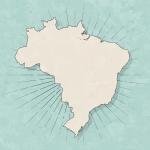This event is a unique opportunity to hear indigenous activists and indigenous academics from different regions and communities of Brazil share their ideas. They will discuss diversity and rights of indigenous peoples in the country, including the different narratives of integration and assimilation of indigenous persons both in the country and in the Latin America region.
The interventions will also address the importance of the territory for indigenous peoples and the additional challenges currently faced by them under the new administration in Brazil. Such as issues of compliance with international environmental preservation and human rights law. It will also explore the connections between trade, consumption, deforestation and land conflicts.
The indigenous leaders are coming in a campaign throughout Europe organized by Brazil’s Indigenous People Articulation - APIB, which is the representation of indigenous movements at the national level.
Panelists
- Célia Xakriabá: Anthropology PhD Candidate at UFMG-Brazil and activist from Xakriabá community, in Minas Gerais. She focuses on denouncing the historical absence of indigenous women in politics and other domains – such as universities – and the role of indigenous women in institutional spaces. She has been an advisor to the Minas Gerais Department of Education and a parliamentary advisor.
- Nara Baré: First female general coordinator of the Coordination of Indigenous Organizations of the Brazilian Amazon (COIAB), which represents 160 peoples from nine Amazonian states. Key activist figure in educating indigenous youth for political battle, through dialogue, confronting politicians, and building technical knowledge.
- Kretã Kaingang: Originally from the Mangueirinha Indigenous Land, a threatened forest area in Paraná. Kretã helped create the Free Land Camp (Acampamento Terra Livre), which is now the largest forum of the Brazilian indigenous movement. He also initiated and led the indigenous battle against fracking, which enables extraction practices.
- Alberto Terena: Pedagogue specialized in school management. Served on the National Commission for Indigenous School Education from 2004 to 2010 and is currently part of the Terena Council, which defends the territory, education, and health of these people who live in Mato Grosso do Sul. He is also the executive coordinator of the Articulation of the Indigenous Peoples of Brazil.
Moderator
- Susanna Hetch, Professor of International History, The Graduate Institute
The event is co-organized by the student initiative the Latin American Network Initiative (LANI) and
by ABIB and GRITO Collective.




